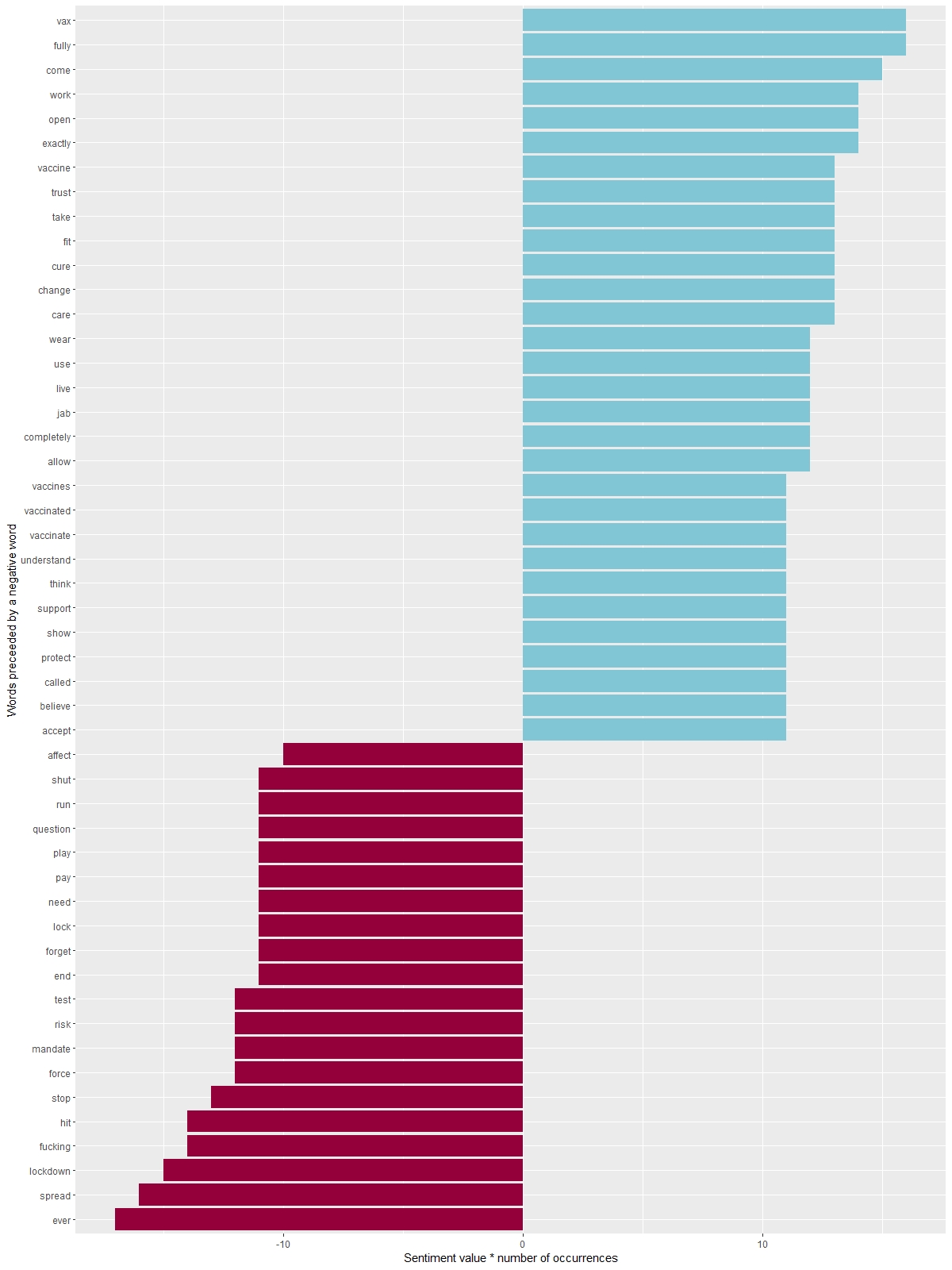Sentiment analysis by country and topic shows common trends to the nine countries of the corpus. However, Luxembourg is often absent from the results due to a lack of representativeness. The ‘antivax’ and unvaccinated people (to whom the first are assimilated) win little support from Twitter users, with an average of 56.16% negative sentiment in the first case and 51.91% in the second case. The booster, equivalent to the third dose of vaccine administered in these countries in December 2021, reaches an average of 55.6% positive sentiment. However, there are few differences between countries.
When we take a closer look at the restrictive measures taken by governments to fight the pandemic, we observe that they are far from unanimous: curfew, lockdown and sanitary pass are rather perceived negatively. The same goes for compulsory vaccination, except for Austria, where politics validate it (divided opinions). Opinions on wearing a mask are also divided. The question of the side effects of anti-Covid vaccines, a topic that is also very present in this sub-corpus, gives rise to most negative sentiment, except in Belgium, Austria, and Switzerland. Finally, protest movements against health measures give rise to the most negative sentiment, reaching 70.76% in Belgium.
It can be considered a contradiction: Twitter users do not tip the scales in favor of restrictive political measures, but, on the other hand, they do not seem to accept protesters. It is undoubtedly linked to the fact that they are often identified as antivax, conspirators or even extremists. This opposition to protesters is expressed in a broad acceptance of harsh measures for this group of people only, as was the case in Austria. A possible explanation is that a person who has been vaccinated several times feels that he/she has done her/his part for society and can therefore benefit from more freedom. However, it is difficult to generalize: ‘Antilockdown, not antivax’.
In addition, the announcement of strict confinement in the Netherlands and the possibility of a new lockdown in the United Kingdom gave rise to numerous tweets where the discomfort felt during a lockdown situation is expressed (“I don’t want confinement”, “I don ‘t think my mental health will honestly last another confinement”, “Horror of confinement”, “I have everything just won’t last another lockdown’).
Sentiment analysis based on bigrams including a negative term confirms widespread support for vaccination under a voluntary condition.

On a methodological level, clustering (KMeans) did not give rise to more significant results than with topic modeling (LDA, CTM), this being undoubtedly linked to the limited size of a tweet. In addition, clustering is a little more resource-intensive, also having to process large text matrices. Moreover, the quality of the grouping will depend on the value k (equivalent to the number of clusters) defined by the user. Like any other form of supervised learning, clustering includes a large part of randomness.
Sentiment analysis – 2grams with negation
